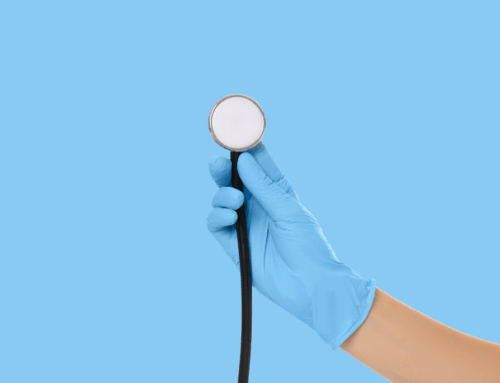
Why preventive care matters
When life feels busy, it’s easy to postpone a check‑up or ignore a minor symptom. Yet routine preventive care is one of the simplest ways to protect your long‑term health. According to the Centers for Disease Control and Prevention (CDC), making healthy choices is only part of the picture—getting regular medical and dental check‑ups helps you stay well and catch problems earlycdc.gov. These visits are separate from sick‑visits. They focus on preventive services such as screening tests, vaccinations, dental cleanings, and counsellingcdc.gov.
Screening tests are medical exams designed to check for common diseases before you have symptoms. Vaccines protect you against infectious illnesses. Preventive visits also provide education and counselling to help you make informed decisions about nutrition, exercise and lifestyle. Routine check‑ups give your provider an opportunity to review your family health history—an important factor in assessing your risk for conditions such as cancer, heart disease and diabetescdc.gov. Knowing your family history empowers you and your care team to monitor specific risk factors and recommend appropriate screenings.
Key benefits of regular screenings
Early detection and peace of mind
Health organizations repeatedly note that early detection is key. Stanford University’s well‑being program explains that knowing your numbers—key measurements like blood pressure, cholesterol and blood sugar—helps you understand your risk for chronic diseasecardinalatwork.stanford.edu. Staying aware of these numbers allows you to take proactive steps toward improving your overall well‑being and living a longer, healthier lifecardinalatwork.stanford.edu.
Routine screenings can also identify certain cancers at earlier, more treatable stages. The Stanford article points out that scheduling screenings like mammograms, colonoscopies and skin exams may help catch cancer before it progressescardinalatwork.stanford.edu. Regular preventive care not only protects your physical health but also gives you peace of mind knowing you are actively investing in your wellness.
Building a relationship with your provider
Preventive visits are about more than lab work or a physical exam. They help you build a long‑term relationship with a provider who knows your history and goals. This relationship allows for more personalized care tailored to your age, medical history and lifestylecardinalatwork.stanford.edu. Over time, your provider can track trends in your health, counsel you on lifestyle adjustments and coordinate any specialist care you need.
Establishing a baseline and tracking changes
Stanford notes that adults benefit from having a yearly record of their health status. Comprehensive screenings include measurements such as blood pressure, weight, body mass index, cardiovascular evaluation and a general physical examcardinalatwork.stanford.edu. Some tests—such as lipid panels, blood glucose tests and eye exams—may be spaced out every two to five yearscardinalatwork.stanford.edu. Having these numbers on file makes it easier for your doctor to see patterns and address changes quickly. For children and teens, regular well‑child visits help track growth, assess vaccine schedules and introduce healthy habits earlycardinalatwork.stanford.edu.
Making preventive care part of your routine
Staying on top of preventive care doesn’t have to feel overwhelming. Stanford suggests simple strategies like planning appointments at the same time each year, setting calendar reminders and keeping personal health recordscardinalatwork.stanford.edu. You might schedule your next annual exam before leaving your provider’s office so it’s locked in. Keeping track of your lab results and visit summaries helps you follow your progress and ensures continuity if you see a new provider. Routine preventive care also gives you an opportunity to ask questions, discuss lifestyle changes and create goals with your care team.
How River Family Health can support you
At River Family Health, we believe everyone deserves compassionate, preventive care. Our annual wellness visits provide a yearly opportunity to review your medical history, identify potential health concerns and create a personalized wellness plan. These visits are prevention‑focused—designed to catch issues early so they can be addressed before becoming serious.
We also offer same‑day appointments for non‑emergency issues that can’t wait. Whether you’re managing a chronic condition or have a sudden concern, having access to your regular provider can make all the difference. Our team will help you decide which services you need and ensure your preventive care is up to date.
It’s natural to have questions about which screenings are right for you or how often you should have them. Guidelines vary by age and personal risk factors, and your provider will tailor recommendations to your individual situation. The information in this article is general in nature and should not replace medical advice. Always consult with a healthcare professional about your specific needs.
Take the next step
Preventive care isn’t a one‑time event—it’s an ongoing partnership between you and your healthcare team. By scheduling regular wellness visits, staying on top of recommended screenings and discussing your family health history, you can take an active role in your well‑being. If it’s been a while since your last check‑up, consider contacting River Family Health today. We’re here to support you on your health journey—no matter where you’re starting from.






